CMN 288
Communication and Social Media

1. Course Description
Social media provides new opportunities for organizations to build relationships and engage audiences as co-creators through strategic use of relevant platforms to achieve persuasive and participatory communication goals. Students will study communication theory, promotional genres, and social media to understand the principles, benefits and ethics of these interactive, mobile, and immediate communication forms. This course integrates theory and practice; students will demonstrate their understanding of course content through their engagement with social media.
Last Revised
Delivery
Lecture: 2 hours, Lab: 1 hour
2. Course Objectives & Learning Outcomes
- To develop communication strategies that apply rhetorical and social media theory effectively
- To select, design and develop textual, visual and other new media content
- To demonstrate awareness of ethical approaches to communication in social media contexts
- To build critical thinking skills by analyzing social media communication products in light of relevant theory
3. Topics Covered
- Theories of media communication
- Social and technological contexts of social media tool
- Audience analysis and analytics
- Rhetoric and media
- Persuasive design
- Security and ethics in social media contexts
- Brand and voice
All topics will be covered, but necessarily in the order listed above.
4. Teaching Method
Lectures Presentation
Classes will consist of lectures, activities and student presentations. Students will work both individually and collaboratively.
Graded Assignments
Students will prepare at least four assignments, one or more of which will be connected to a social media campaign. Specific requirements and assignment weighting will be provided by individual instructors.
5. Course Materials
Readings will be available in electronic form on D2L Brightspace.
6. Policy
6.1 University Policies
Students are required to adhere to all applicable university policies found in their Online course shell in D2L and the Course Outline Policies.
6.2 Print and Digital Copying Guidelines:
Toronto Metropolitan University complies with Canada’s Copyright Act which protects both creators/owners and users of copyrighted materials. Students should familiarize themselves with TMU Copyright policies and procedures, and contact the Copyright and Scholarly Engagement Librarian at copyrt@torontomu.ca for questions, concerns and clarification of the copyright rules.
6.3 Turnitin.com
Turnitin.com is a plagiarism prevention and detection service to which Toronto Metropolitan University subscribes. It is a tool that helps instructors determine the similarity between student work and the work of other students who have submitted papers to the site (at any university), Internet sources, and a wide range of books, journals, and other publications. While it does not contain all possible sources, it gives instructors some assurance that students’ work is their own. No decisions are made by the service; it generates an “originality report,” which instructors must evaluate to judge whether something is plagiarized.
Students agree by taking this course that their written work will be subject to submission for textual similarity review to Turnitin.com. All submitted papers will be included as source documents in the Turnitin.com reference database solely for the purpose of comparing the similarity of such papers. Use of the Turnitin.com service is subject to the terms-of-use agreement posted on the Turnitin.com website. Students who do not want their work submitted to this plagiarism detection service must, by the end of the second week of class, consult with their instructor to make alternative arrangements. Even when an instructor has not indicated that a plagiarism detection service will be used, or when a student has opted out of the plagiarism detection service, if the instructor has reason to suspect that an individual piece of work has been plagiarized, the instructor is permitted to submit that work in a non-identifying way to any plagiarism detection service.
6.4 Email Communication
Toronto Metropolitan University requires that any official or formal email communication from students be sent from their official Toronto Metropolitan University electronic accounts.
6.5 Video and Audio Recording
No video or audio recording is permitted in class without the express permission of the instructor.
7. Learning Management System
Toronto Metropolitan University supports Brightspace by D2L as its official Learning Management System. University Policies governing Brightspace have been documented at the Courses @ Toronto Metropolitan University Privacy and Security website.

